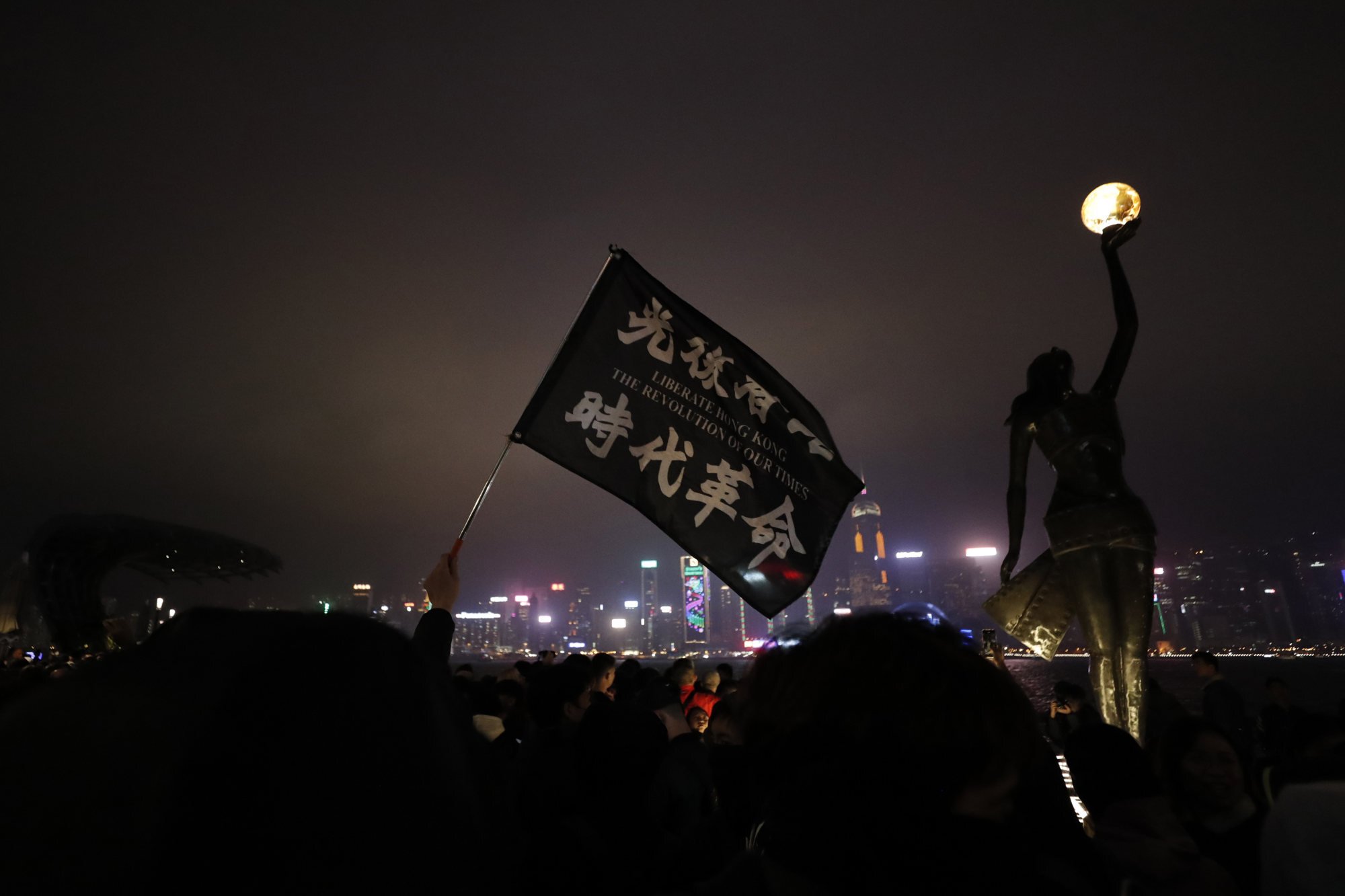
National security trial ruling a setback for human rights in Hong Kong
- Under the standard applied, just about any slogan that might possibly bear a meaning that is prohibited could then be judged unlawful and result in jail time
- Pursuing the charge of grievous bodily harm rather than terrorism would have been supported by the evidence and not caused fears over human rights in Hong Kong
Human rights and the rule of law clearly took a dramatic step backwards in that judgment, convicting Tong of inciting secession with no mention of human rights and of terrorism with little regard for his causing popular fear. A third charge related to grievous bodily harm by dangerous driving was not pursued by the government.
He ran through several police cordons before hitting and injuring three police officers, though their injuries were not serious. The charge of secession was based mostly on the political slogan. The terrorism conviction paired the injuries caused plus the political purpose of his actions.
We were told in the judgment that intent to incite secession – being the independence or splitting of Hong Kong from China – is sufficient, without regard to the consequence.
The 1996 Johannesburg Principles on National Security, Freedom of Expression and Access to Information is perhaps the most widely cited source in global practice. Principle 6 provides that “expression may be punished as a threat to national security only if a government can demonstrate that: (a) the expression intended to incite imminent violence; (b) it is likely to incite such violence; and (c) there is a direct and immediate connection between the expression and the likelihood or occurrence of such violence”.
While Article 21 of the national security law, with respect to incitement, makes no mention of this “imminence” requirement, meeting the human rights requirement laid out in Article 4 would require the court to apply the appropriate international human rights standard in interpreting the text.
In the Tong judgment, citing a series of old common law cases that either preceded current human rights standards or did not involve speech of a political nature, the three-judge panel relied only on the intent of the speaker. Without any mention of the human rights standard, it only considered whether the slogan “was capable of inciting others to commit secession”.

Under this standard, just about any slogan that might possibly bear a meaning that is prohibited under the national security law could then be judged unlawful, resulting in conviction and sentencing to long years in prison.
If we apply this view, the risks are alarming. Will future protesters who merely demand an investigation of police abuse, for example, face conviction for bringing hatred on the police under the national security law?
There appears a similar omission in the court’s reasoning on the terrorism charge. The national security law targets “terrorist activities causing or intending to cause grave harm to the society” with a political aim to coerce the government or intimidate society. The judgment just focuses on the what the court deems is the political purpose of Tong driving his flag-bearing motorcycle into the police cordon, with little discussion of the nature of “terrorist activities”.
The notion of terrorism in international practice, as the word suggests, has long focused on doing something where the required intimidation is the result of popular fear. Terrorist bombings or beheadings and the like are the most notorious examples in this regard.
Under the standard in the judgment, anyone who engages in some sort of violence or even possibly resisting arrest while taking part in a political protest might be judged a terrorist, including youthful protesters setting up roadblocks or damaging a traffic light.
The concern here is that ordinary crimes, done in a political context, are not met with the serious charge of terrorism merely on the argument that lawbreaking might intimidate people who did not support those views.
Pursuing the easier charge of causing grievous bodily harm by dangerous driving would have been supported by the court’s findings in this case and would not have caused grave concerns over the security of human rights in Hong Kong. We can only hope these issues will be addressed in the coming appeal.
Professor Michael C. Davis, a former professor at the University of Hong Kong, is the recent author of Making Hong Kong China: The Rollback of Human Rights and the Rule of Law


